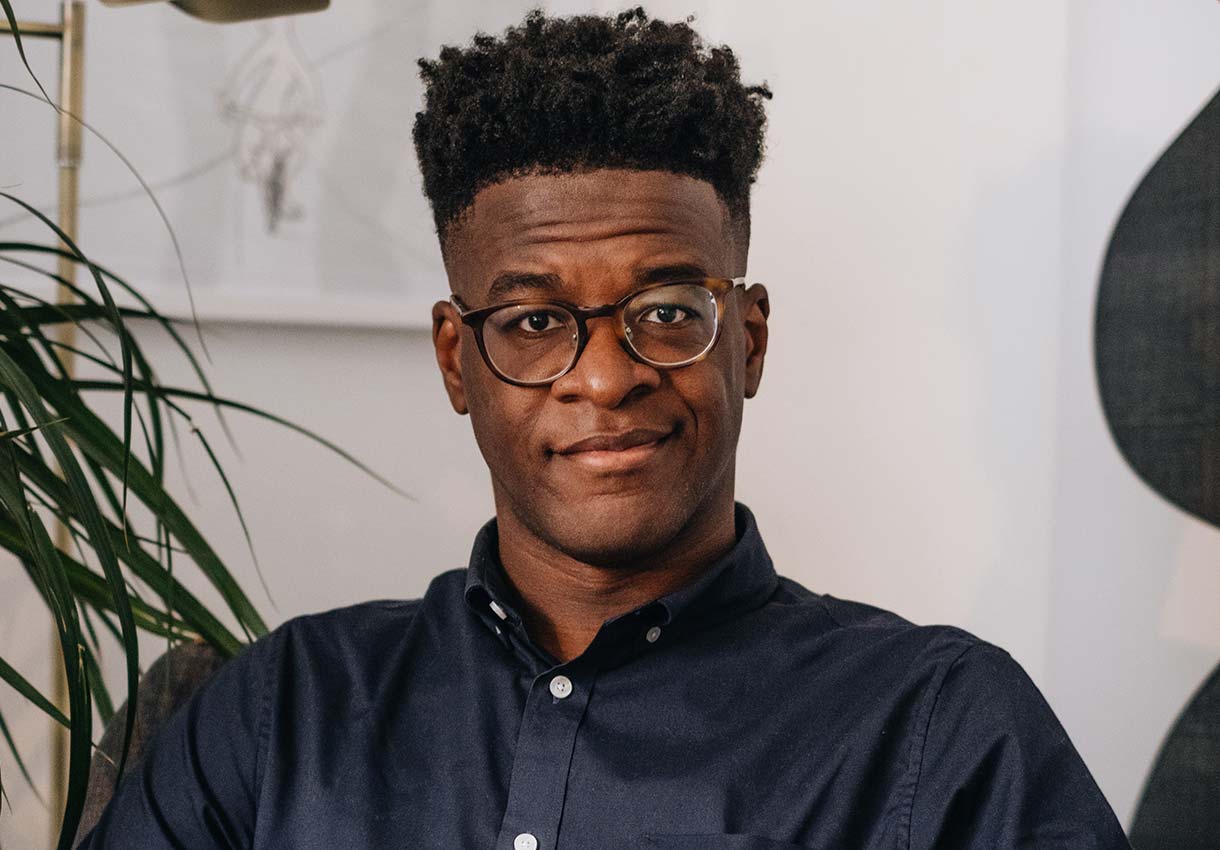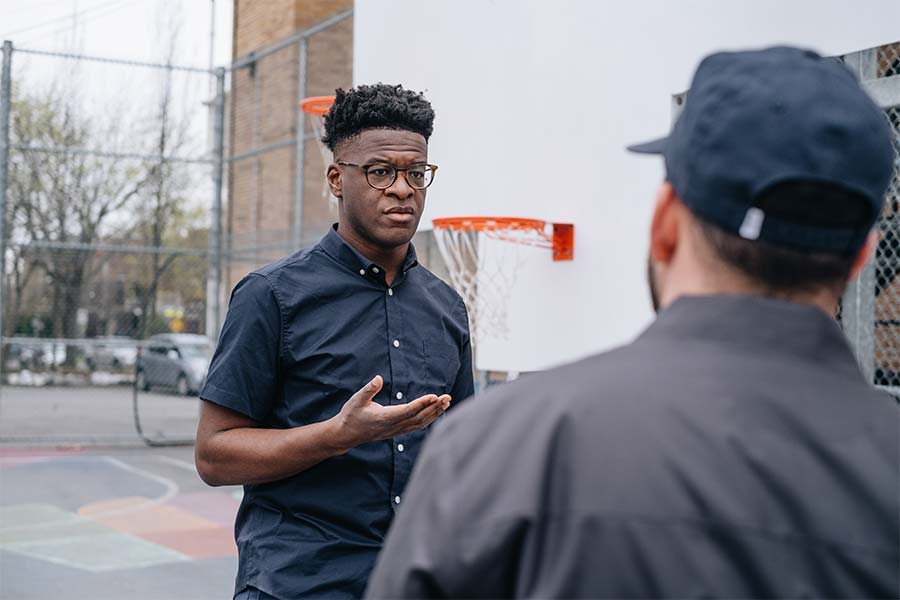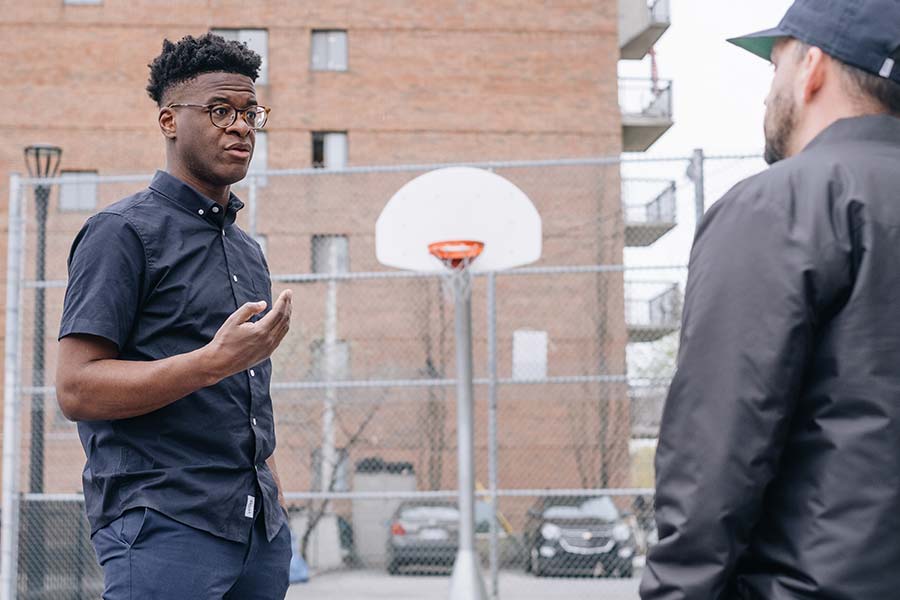A discussion with Fabrice Vil, co-founder of Pour 3 Points, social entrepreneur, columnist and lawyer.
Vallier meets: Fabrice Vil

Pour 3 Points, a non-profit that coaches up coaches to better intervene socially in kids’ lives, was founded in 2011, a time when Fabrice Vil was still a practicing lawyer. Having always been involved in sports, first as an athlete, then as a coach (and even as a referee), Fabrice saw first-hand the impact that coaching had on young athletes. This experience motivated him to leave law and focus on work that aligned with his passion for helping young athletes - and Pour 3 Points was born.
We met up with Fabrice at his local basketball court to discuss Pour 3 Points, the importance of education, and social entrepreneurship.
What is Pour 3 Points’ overarching mission? How can one promote education through sport?
Fabrice Vil: To put it simply, we coach coaches. Coaches can positively influence the lives of young people through mentorship, and this is especially true for those in underprivileged communities.
Sport acts as a natural motivator for youth participation. Competition teaches skills like resilience, discipline, and teamwork. Sport also boosts self-confidence and fosters relationship-building skills.
The mandate of Pour 3 Points is to equip coaches with skills to positively impact the lives of young athletes. This influence can continue into other areas of youth's lives, providing long-term direction. The bond between a coach and a young athlete is naturally created through emotional experiences, like victories and defeats, that build trust and shared passions.
Tell us about the challenges of social entrepreneurship.
One of the biggest challenges is making sure that decisions are aligned with the organisation's end-goal. Social entrepreneurship has its obstacles - you have to find a way to grow a business while staying connected to the mission, focussed on the social impact. It becomes a rewarding challenge to stay motivated by the progress made through our work.
For example, many aspects of what we do at Pour 3 Points could be used to enhance high performance sport - but to do so would impose a revenue structure that would distract us from our primary purpose. If we ever decide to expand our operations and monetize the services we provide, any profits generated must be used to support our organisation’s core mission.
The ability to assess the value of a service or product is another hurdle in social entrepreneurship. As an NPO, having a cost-and-service structure not aligned with the market means we have to seek out highly qualified, talented people who want to work with us, despite knowing that they’d be better paid in the private sector. That's both an advantage and a disadvantage - we point out that working for Pour 3 Points has benefits besides the salary.
The people who work with us are not money-driven. There’s a sense of pride, a social richness, and a better understanding of why we do what we do, when we choose to work for a social enterprise instead of a for-profit business. I think that when there’s financial motivation behind your choices, it’s easier to forget why you are working in your industry in the first place.
As a society, how can we provide more opportunities for youth from underprivileged communities?
It’s important that public services are equal for everyone - we need good education services, health services, and social services. These must be intelligent, able to adapt to different realities that different people face. Everyone should have equal access to housing, good education, and adequate health care. It's up to the government to prioritize these, but it's also up to businesses to get involved. We have an economic system that allows some people to have more money than others; there has to be a means to redistribute wealth and give back to communities that need it the most.
We also have to share and amplify individual stories that differ from our own personal experiences. This will avoid unconscious bias, open us up as a society, and redefine the spectrum of what is normal. I believe everyone has to examine their own conscience, and determine what sacrifices they’re willing to make in order to contribute to the greater good of their community.


